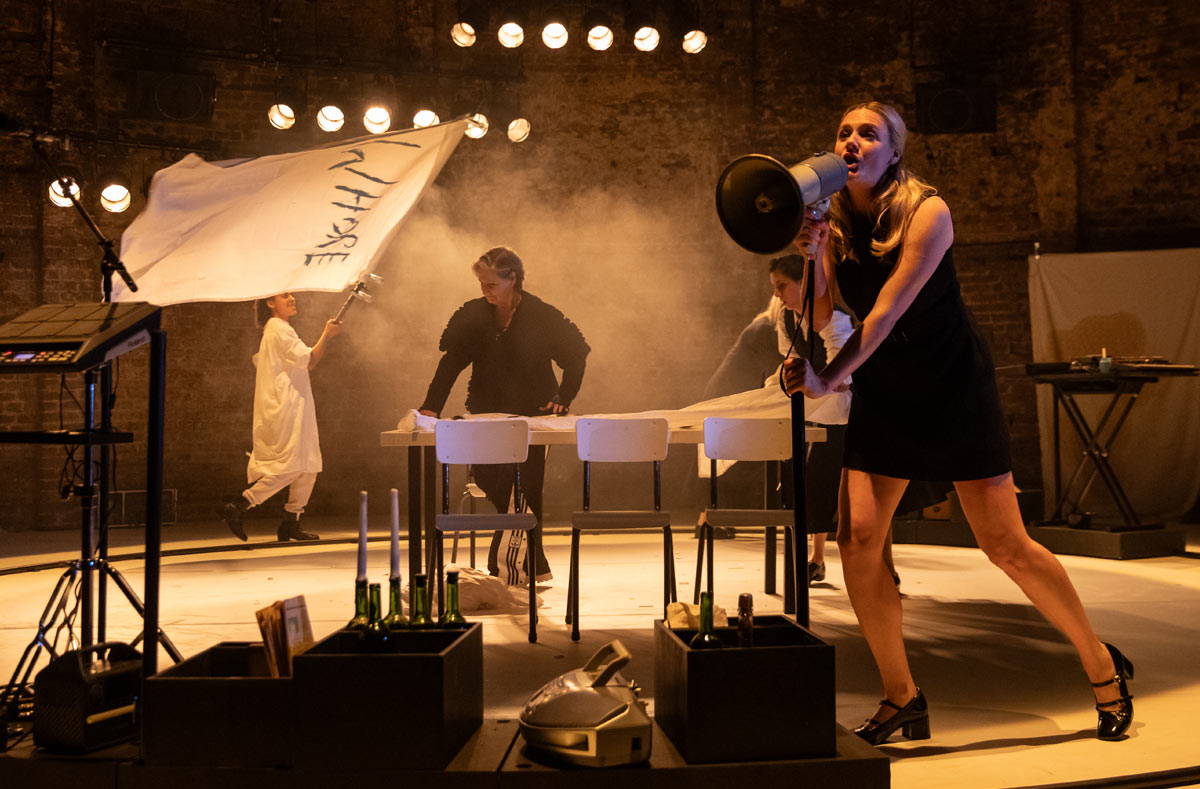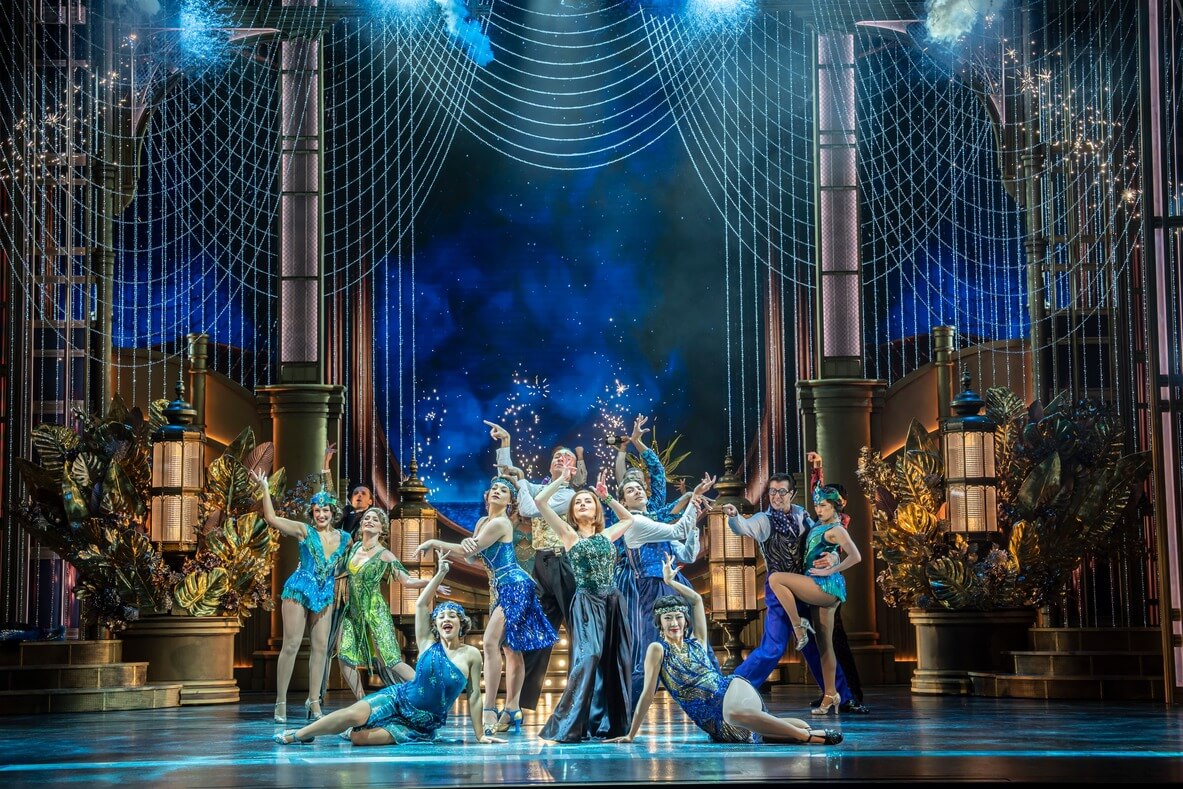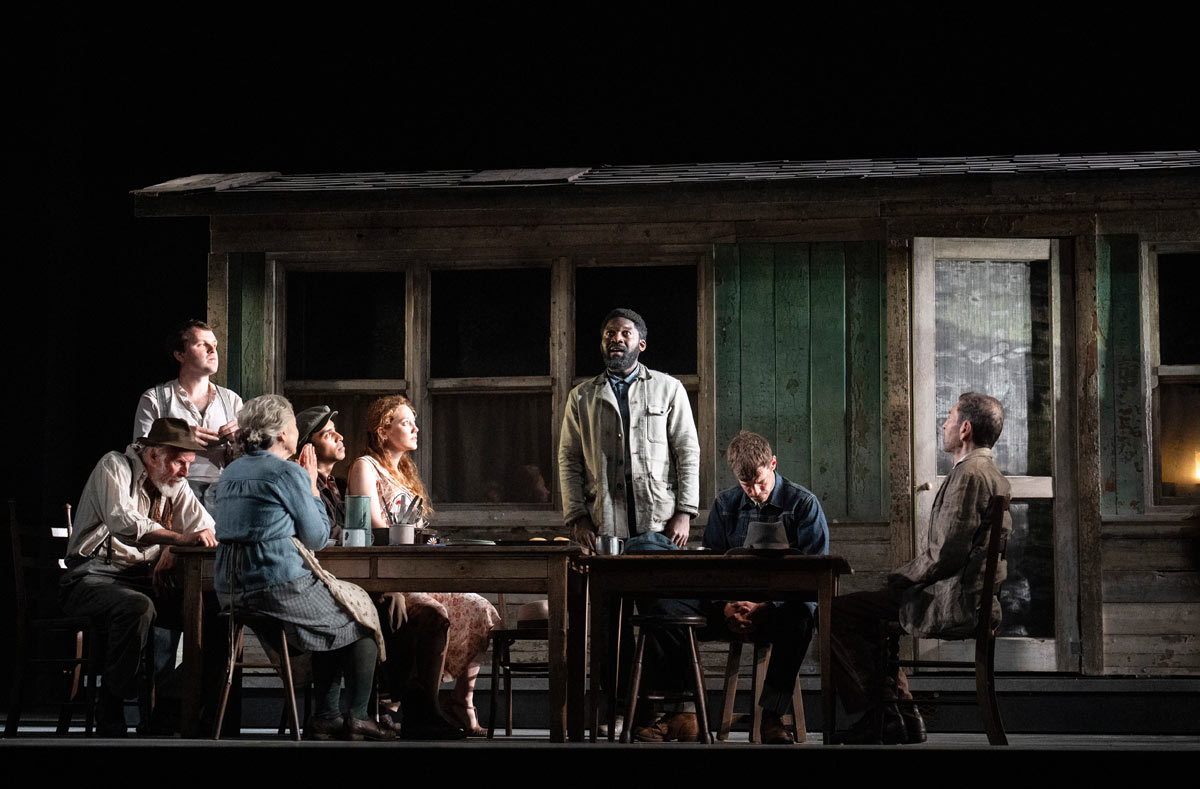Rather like The 7 Ages of Man (but eschewing the tedious first and last sections), each member of the cast is afforded special prominence for a particular stage, announced by her being described whilst posing for a photograph from the period she represents. Her expression, clothing and other details, give us a voyeuristic essence of the woman before us, before we delve into a more theatrical understanding of the events which shaped her.
In a strongly supportive female collective, Deborah Findlay, Romola Garai, Gina McKee, Anjli Mohindra and Harmony-Rose Bremner play Annie through decades in which the girl grows to be a woman, a mother and much more. The list of trigger warnings which accompanies the play, is not only a reflection of the society in which we now live(!), but of infinitely more significance, a considerable testament to the real life experiences many woman have endured and overcome. In no particular order, these include the end of the War, Annie’s sexual awakening, periods, the advent of rock’n’roll, masturbation, first physical congress with a male, the Vietnam War, unwanted pregnancy, abortion (before the act had been decriminalised and whilst it was still the preserve of backstreet unregistered practitioners), introduction of The Pill and the sexual liberation it afforded. Death of Stalin, marriage, teaching, Mao’s cultural revolution, birth of children, parenting, divorce, middle-aged freedom, the taking of lovers, the menopause and reaching an age where technology renders you an imbecile in the eyes of those who interact with it on a daily basis.
The production will doubtless achieve notoriety for the graphic and unflinching representation of certain elements, but these are often depicted with with a touching humour and in the case of a terminated pregnancy, with searing, heart-in-the-mouth honesty and extraordinary sensitivity.
As a man, the ultimate sense one gets from watching the production is that women are better equipped, and far more resilient and adept at dealing with the ups and downs of life. They are also damned accomplished at openly sharing and telling their stories with subtlety and a blisteringly impressive frankness.

 Romola Garai in The Years at the Almeida Theatre. Credit Ali Wright
Romola Garai in The Years at the Almeida Theatre. Credit Ali Wright

